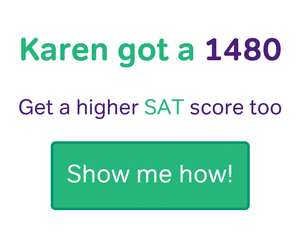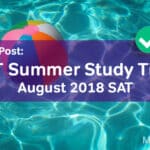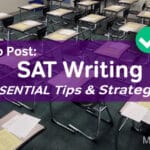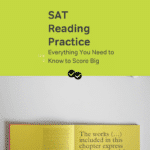Reading Comprehension can be very frustrating. With certain questions, it seems as though many of the answers can work. Often students throw their hands up in despair thinking that the test is rigged. Don’t succumb to such a temptation. The test is valid (you can always contest with the College Board). Finding the correct answer is possible if you try the following:
Don’t rush in
Often the reason why multiple answers seem to work is you go straight to the answer choices without thinking about the question. Suddenly, you grasp on to an answer choice that sounds good. Even though it is wrong, that answer choice can even influence your perception of the passage. And once you’ve interpreted a passage a certain way, it is difficult to see the passage with fresh eyes.
Go back to the passage and think about what the question is asking
Do not spend time flailing about the answer choices. Go back to the passage and try to answer the question yourself. Often a great exercise is to cover up the answers and come up with your own answer (This strategy is especially helpful on main idea questions!)
Once you’ve come up with your own answer match that with an answer choice. Now, instead of letting the answer choices control you, you control the answer choices.
Use process of elimination when necessary
On more difficult questions, you may not always be able to home in on the right answer. But thinking about what the correct answer should be will often help you eliminate most of the answers choices, even on the most challenging of questions.






Leave a Reply